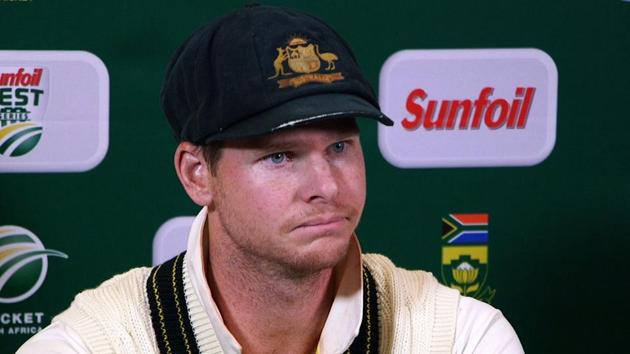Ball-tampering scandal: it was hubris that devoured the Australian ‘leadership group’
There has been collective outrage, especially in Australia, of feeling ‘betrayed’ by our modern day heroes, much like we Indians felt when the match-fixing scandal first broke. And yet, some of the responses are typically hypocritical and exaggerated in a socio-political milieu where those who shortchange the system are often suitably rewarded
“We were desperate,” admitted Australian captain Steve Smith when asked to explain why his team had so brazenly attempted to tamper with the cricket ball against South Africa. That one candid admission, in a sense, sums up the state of mind of not just the disgraced Australian captain, but also of contemporary society. The fine line between ‘winning’ and ‘winning at all costs’ has been crossed — not just on the cricket field but also well beyond its boundary.

Modern sport exemplifies the ethos of a maddeningly competitive society in which the end matters more than the means. Sport is no longer about the Olympic spirit as defined by the founder of the Modern Olympics, Pierre de Coubertin, who said: “The important thing in the Olympic Games is not to win, but to take part; the important thing in Life is not triumph, but the struggle; the essential thing is not to have conquered but to have fought well.” That Olympic motto is for a bygone era of amateur athletes when sports was primarily a leisure activity. As indeed is the deeply flawed notion of cricket as a gentleman’s game, a manufactured idea from the sport’s colonial past when the Empire claimed to play by the rules of the game.
Instead, sport in the 21st century is, at one level, about fiercely competing nationalisms, a war between nations where sporting triumph is intrinsically linked to national pride. It is the desire to prove the superiority of the Communist system that led athletes from the Soviet Bloc to embark on a systematic doping programme in the Cold War era. It is this craving for global recognition that saw China breach the Great Wall through a single-minded focus on Olympic success. And it is perhaps this obsessive urge to prove that the Australian nation remains the pre-eminent cricketing power that led Smith’s team to engage in what can only be described as an act of premeditated cheating to halt South Africa’s march to victory.
At another level, professional sport is not just about individual excellence; it is as much a brutal battle for survival of the fittest, for acquiring the fame and great riches that a multibillion dollar industry has to offer. It is this that perhaps led even a champion tennis player like Maria Sharapova astray, pushed cricketers to fix matches, Ben Johnson to take performance-enhancing drugs. The darker side of sport is hidden in the glitter of celebrityhood, of IPL-type tamashas, in which players are expected to perform with robot-like precision day in and day out. But lift the veil and the gods of sport are often found to have feet of clay. They are highly skilled athletes, but are also imbued with all the insecurities and anxieties of less exceptional humans.
Smith and his chief conspirator David Warner didn’t need the money: the duo is arguably among the wealthiest cricketers in the game. They didn’t need fame and recognition either: Smith’s run-making feats have already drawn comparisons with the legendary Sir Don Bradman. But pushed to the limit by the equally competitive South Africans, their pride and ego were hurting. In the final analysis, it was hubris that eventually devoured the Australian leadership group, an arrogant streak that led them to believe that they could actually get away with their actions even in today’s hyper-media age in which dozens of cameras monitor every move. The anxiety for success coupled with a heightened sense of invincibility is a dangerous combination. The Australian cricketers, sadly, chose to take the short-cut of subverting the sport’s rules instead of relying on their talent alone.
Not surprisingly, there has been collective outrage, especially in Australia, of feeling betrayed by our modern-day heroes, much like we Indians felt when the match-fixing scandal first broke. And yet, some of the responses are typically hypocritical and exaggerated in a socio-political milieu in which those who shortchange the system are often suitably rewarded. Do politicians who will do whatever it takes to win elections, businesspersons who fiddle with balance sheets, students who cheat during exams, doctors and lawyers who eschew professional obligations, journalists who will peddle fake news, have any moral right to turn on sportspersons as the villains of the day? Or do we expect our sporting heroes to be held to a higher bar of morality and public behaviour? Smith and his teammates may have let down millions of cricket fans but they also hold a mirror to a society that has lost its moral compass.
Post-script: In the late 1970s, Bishan Bedi, who was India captain at the time, was sacked by his English county for accusing the English bowler John Lever of using vaseline to tamper with the ball. White men don’t cheat, was the self-righteous underlying response. In 2018, we most certainly know they do!
Rajdeep Sardesai is senior journalist and author.
The views expressed are personal






